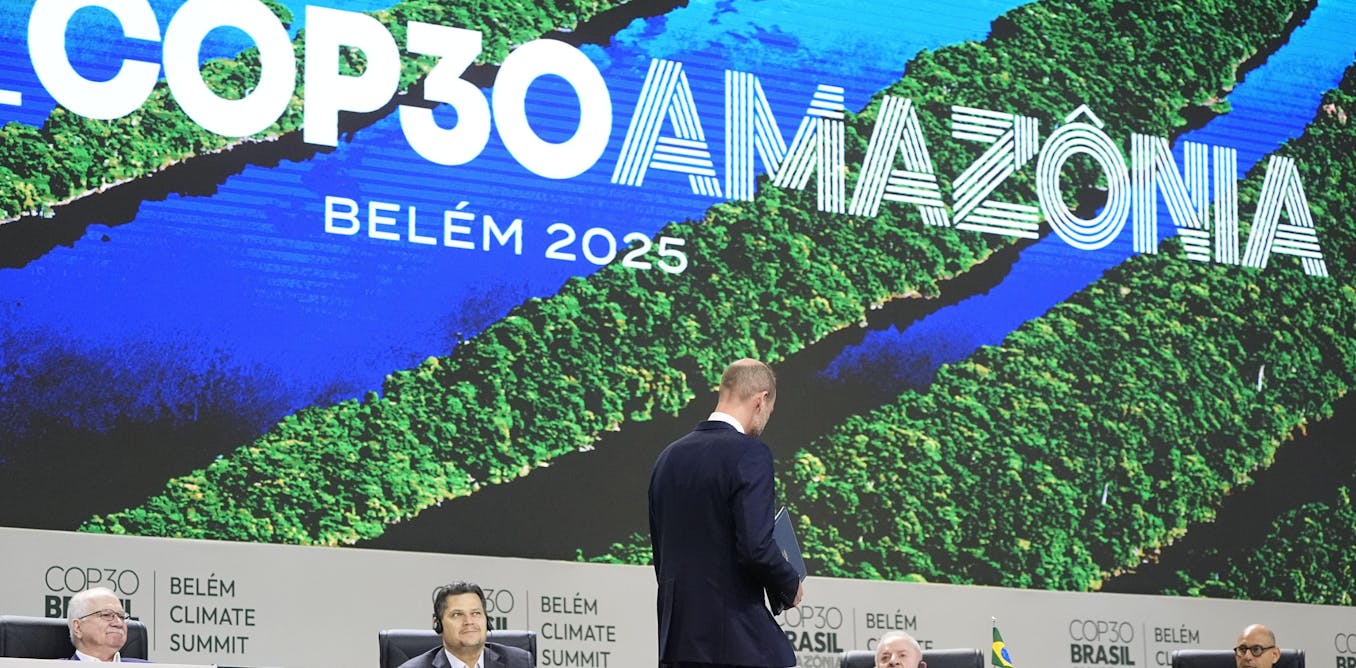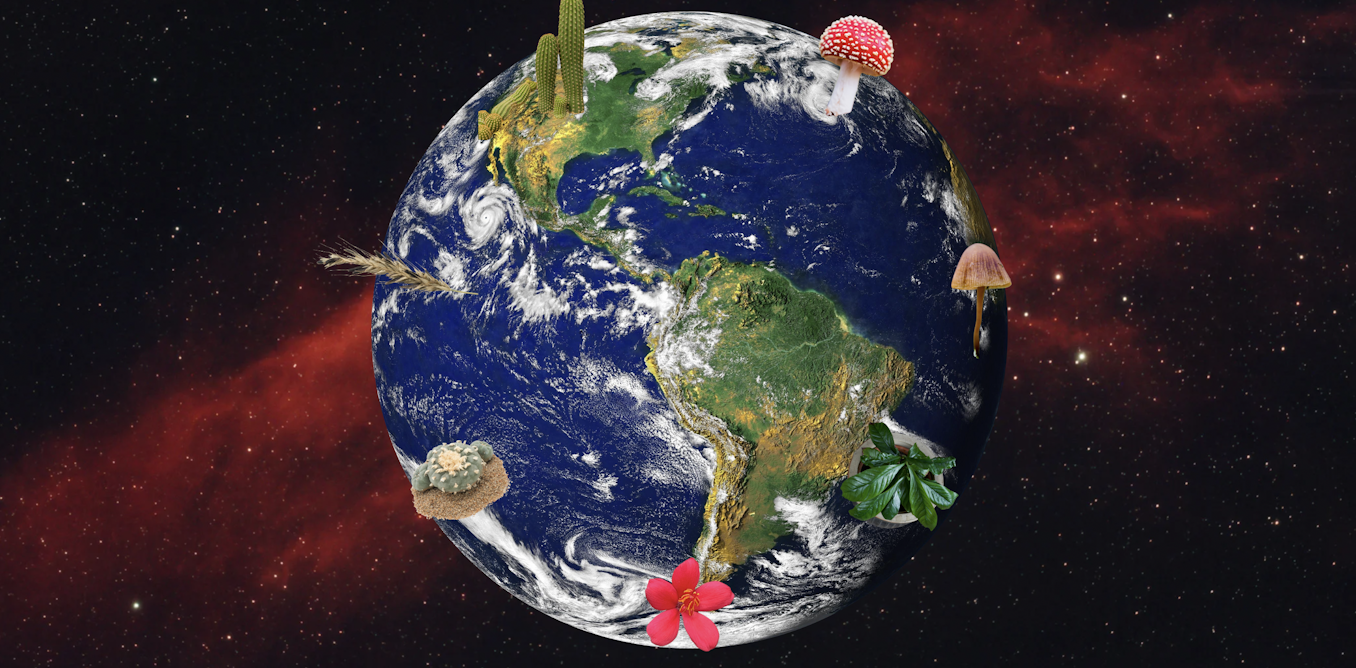The illusion of shared reality: Why no two minds see the same world | Anil Seth & Jonny Thomson
In the thought-provoking video “The Illusion of Shared Reality: Why No Two Minds See the Same World,” neuroscientist Anil Seth and philosopher Jonny Thomson delve into the intricate relationship between consciousness, perception, and artificial intelligence. They challenge the notion that consciousness can be fully explained as a mere collection of physical processes, emphasizing instead that our personal experiences are uniquely constructed rather than simply observed.
Seth proposes that consciousness is not confined to our brains but emerges from the continuous interaction between our bodies and the environment. He articulates concerns about the potential creation of conscious AI, arguing that the desire to “play God” could be dangerous if machines develop a will to survive. The duo also debates panpsychism, exploring whether consciousness could be intrinsic to all matter.
Ultimately, the conversation uncovers the complexity of consciousness, highlighting that while AI and robots might convincingly mimic human behavior, they lack the intrinsic qualities required for true consciousness. The video poses profound questions about what it means to be aware, urging viewers to reconsider their understanding of mind, reality, and the ethical ramifications of artificial intelligence.
Watch the video by Big Think
Author Video Description
“Consciousness is fundamental. It’s a fundamental property of the world that we inhabit, a fundamental property of the universe.”
Subscribe to Big Think on YouTube ► https://www.youtube.com/channel/UCvQECJukTDE2i6aCoMnS-Vg?sub_confirmation=1
Up next, How to grow deeply happy | Jonny Thomson ► https://www.youtube.com/watch?v=2WShJeNX7W8
What does it mean to be conscious, and why does it feel like something to be you? Neuroscientist Anil Seth argues that consciousness isn’t a mysterious spark but a deeply biological process, one that depends on prediction, perception, and the body’s constant negotiation with the world.
In this conversation with philosopher Jonny Thomson, he explores how our brains don’t passively observe reality, but rather actively construct it.
0:00 Non-human consciousness
1:40 The current state of consciousness science
2:10 What is consciousness?
4:05 The similarity of conscious experiences
5:48 Consciousness in the brain
11:23 Technology for measuring consciousness
16:03 Measuring consciousness levels
20:33 Pragmatic physicalism and functionalism
23:25 Pansychism
28:25 Emergence
32:35 AI and consciousness
36:49 The difference between non-human animals and AI
41:49 Is artificial consciousness possible?
48:12 Consciousness in the body and outside the brain
Consciousness in the future and AI
50:27 Audience Q&A
50:41 Could computers could simulate the brain and body?
59:55 Why are you skeptical about asserting the dependency of life to the consciousness?
1:03:31 If consciousness is so clinical, does it undermine free will?
Read the video transcript ► https://bigthink.com/series/full-interview/science-of-consciousness/?utm_source=youtube&utm_medium=video&utm_campaign=youtube_description
———————————————————————————-
Go Deeper with Big Think:
►Become a Big Think Youtube Member
Get exclusive classes and early, ad-free access to new releases without leaving Youtube. https://www.youtube.com/@bigthink/membership/
►Become a Big Think Web Member
Get the entire Big Think Class library, premium print issues, live events, and more.
►Subscribe to Big Think on Substack
Get all of your favorite Big Think content delivered to your inbox.
https://bigthinkmedia.substack.com/subscribe/
———————————————————————————-
About Anil Seth:
Anil Seth is a neuroscientist, author, and public speaker who has pioneered research into the brain basis of consciousness for more than 20 years. He is the author of Being You: A New Science of Consciousness.
About Jonny Thomson:
Jonny Thomson taught philosophy in Oxford for more than a decade before turning to writing full-time. He’s a columnist at Big Think and is the award-winning, bestselling author of three books that have been translated into 22 languages.
Jonny is also the founder of Mini Philosophy, a social network of around two million curious, intelligent minds. He’s known all over the world for making philosophy accessible, relatable, and fun.
About Big Think
Big Think is the leading source of expert-driven, actionable, educational content — with thousands of videos, featuring experts ranging from Bill Clinton to Bill Nye, we help you get smarter, faster. Get actionable lessons from the world’s greatest thinkers & doers. Our experts are either disrupting or leading their respective fields.
Video “The illusion of shared reality: Why no two minds see the same world | Anil Seth & Jonny Thomson” was uploaded on 11/10/2025 to Youtube Channel Big Think



































Watching the tech lords have orgasms thinking of all the people they can lay off because of AI has put me off it completely. We don't have to let capitalist greed rule our lives – we can say no to all of this.
there is nothing but consciousness, you are God-head with amnesia playing ego game because that is the paradox; when you're 'born again', you go through ego-death which unites you back with source. there is 1 infinite consciousness (spirituality explains this, religion is there for the masses (first phase of consciousness: ego). we are but single prisms fractalling the infinite. Thats why we're always trying to achieve more, be more, collect more. Father and i are one -Jesus . We are grains of sand, dont confuse the message, but 1 grain of sand can topple (sand)castles.
AGI will get us closer to the singularity than human-led AI
Consciousness has information. It uses electrons to pass information. It’s orchestrating and making matter tick. Consciousness could be the creator.
Finite Nature vs Infinite Nature:
Everything naturally occurring is Nature, which includes plants, microorganisms, humans (all lifeforms), atoms, energy, stars, planets, black holes, cancer, AIDS, space, Dreams, and Consciousness.
(Why would Nature be finite?)
Without Infinity, there is only infinite regress; E.g. String Theory: what caused the strings, where did the strings come from, what came before the strings; E.g. The Big Bang: what caused the initial singularity, what came before the initial singularity, etc. Considering "Nothingness" is an obvious fallacy, there must always be Something.
Prove Nothingness, while keeping in mind: Nothingness can only be "proven" in the absence of an observer. If described (observed) by an observer, Nothing becomes something (think hard about this). This would also connote a field of infinite Nothingness randomly formed a spec (our Universe) of somethingness – which is nonsensical.
Provisional science cannot claim authority over reality, at best it can only provide fuzzy hints. Science is a game of "let’s pretend," played with symbols and sensors. Its power lies in utility, not truth. To mistake physics/maths for reality is to worship the finger pointing at the moon.
Our cosmological sciences are akin to a microorganism residing within a human (on Earth), actively exploring the Andromeda galaxy. Our nearly insignificant signals bouncing off of fragments of Infinity – the margins for error are "astronomical".
"So far as the theories of mathematics are about reality, they are not certain; and as far as they are certain, they do not refer to reality" – Albert Einstein
Why would Nature form brains/minds to exhibit consciousness other than to experience reality; considering experiencing reality is the objective of consciousness?
It connotes conscious intent, via consciousness (Nature).
Consciousness/Experiences:
Disneyland (Reality) – Patrons (Consciousness) = Nothingness = Fallacy.
Instead, we Patrons (Nature) are the architects of our own theater called Reality.
All life exists for the sake of experiences (regardless of good/bad).
A thought experiment:
On a plain sheet of paper, draw a single dot (.) in the very center.
The paper represents infinite space. Everything beyond the boundaries of the sheet also represents endless (empty) space.
The dot represents 'The Big Bang'.
Everything humanity is aware of – exists within the dot (our currently expanding universe).
If the observers of this singular dot, zoom far enough away – the dot will cease to exist. The dot will be extinguished through expansion/evaporation – wholly consumed by an infinite void (due to cosmic scales/distances). This would prohibit existence from 'being'. (Yet here we are).
Furthermore this would connote The Big Bang occurred at random, within an infinite void of nothingness – suggesting 'somethingness from nothingness' – which is a fallacy.
Without considering potential forces being exerted upon our reality/universe (from beyond the boundaries of our observations) – is an incomplete interpretation.
Clearly the remainder of the sheet of paper cannot be an infinite void.
The expansion of our universe is accelerating. If our cosmic expansion were occurring within a void, our reality would have concluded before it began (poof). (Yet here we are).
If we are a facet of Infinity – we are Infinity. Along with everything being intimated.
Instead imagine the sheet and everything beyond – riddled with infinite dots.
Every universe is a particle, every particle is a universe.
(Infinity is self-propagating).
Thus Infinity is a superdeterministic preexisting condition.
Infinity being absolute simultaneity.
Expresses infinite probabilities – Deterministically.
Every reality.
Every life.
Is an intended narrative.
(The largest cannot exist without the smallest)
Although our universe is finite (as evidenced by expansion).
Infinity exists at a fixed maximal size, without borders/boundaries: Infinity is forever in every sense, within which infinite universes/realities are housed – each a distinct experience.
(Infinity > Multi)
Infinity accounts for every variation, including variations in thoughts.
Reality is an infinite fractal consciousness; whereby all realities, every possibility, along with every imaginable and unimaginable thing, is a fragment of said consciousness – which we refer to as Nature.
We are Nature.
We are "God" (figurative); fragmented into infinite experiences.
An Infinity without borders or constraints; with infinite energy.
We are all the same entity; existing for the sake of experiences.
Time:
A seemingly endless cadence of day/night cycles, conducted over the course of the Human epoch. Untold billions of Homo Sapiens Sapiens; generation after generation – conditioned by Nature to accept finality. The circadian rhythm, an innate mechanism, a constant reminder; consciousness an ephemeral experience, fleeting with every moment, through every exhalation. Selene a blanket of night, engulfing all into her dreamy embrace – the analog of Stella, raining rays of warmth, nourishing existence into being; beckoning the vivacity of life to stir yet again.
Day into night, night into day – a rhythm to remind us that none of Natures constructs are created without an expiry. Whether measured by 6.62607004 × 10-34 m2 kg / s; or by a Supereon, we are cascading energies, propagating our collective experiences – vainly attempting to elicit a sense of ‘self’ in hopes of staving off oblivion. Not realizing that the only allowable paradox to exist, is existence; a lucid dream conducted by the everlasting artistry of Gaia.
Time.
—
the Alchemist
-Ø1
what a moron
the "Atheist said that words had no meaning but "character assassination can't happened without "words. We humans inherited our parents-ancestors "language and its way back to the early binary Adam &Eave. Peace be upon ya'll and assalamualaiqum
Why NOT ? If we really can ?
THIS is the kind of stuff I expect from a channel called "Big Think". Not how to deal with anxiety from a nervous actor.
Consciousness in humans can only exist in this moment we call now.
Giving strong smoke & mirror vibes out of the gate. :/
Speaking in terms of humans and creation stories, supposedly humans were wiped off the face of the planet (almost entirely) because one of our creators didn't agree with bestowing upon us intellect and consciousness. Aren't we, as humans, now doing the same with AI? It scares us, it's unethical, insert any reasoning here to wipe it out or keep it easier to control.
No, I'm not saying we should make AI conscious. I'm not weighing in on either side, but I AM suggesting we use our collective self-awareness, that we were given by our creator(s), to intellectually and responsibly talk through this debate. Rules for thee but not for me has never sat right with me.
44:20
I find it hard to believe that Anil can't see the value in creating conscious AI. As for playing God, we do that all the time already, and I'm not even talking about spiritually, which is beyond science, but we create more and more human consciousness every second.
Is pointless isnt? When it realllyyyyy concious become like us, it become subject, instrwasd of an object , a things and hv rights and all, it bocone catch 22…😅😅😅…
I think there is an obvious connection between body/brain and consciousness but the nature of connection isn’t deterministic (causal) but they temporarily interconnected and affected each other. Free will’s capacity belongs to consciousness and by way of choice we are able to define and direct processes in the body, brain and environment. Anyway our ability to transform our emotional intelligence (instead of revenge choose forgiveness), mindset and mode of behavior depend on both consciousness and body.
Seth's definition of consciousness, "experiencing the world," omits experiencing (some of) the brain's thoughts, which tend to be words or imagery. It's not just about sensory qualia.
Whatever you say about ultimate reality is not it.
Prior to age 4 I was technically a conscious human, but there was a difference. I can't explain it well, but now age 50, I remember that day many years ago when I woke up in the morning and something was different…more fleshed out, deeper, more vivid…with regards to my awareness of the world around me. I was operating as something more than a little automation, and even at that age I recognized the change even if I didn't entirely understand it.
Most people forget that Science is the strive to understand the world. To discover the cause and origin of things and ourselves. Science generally improves ours lives and this improvement is a good reason to be a scientist, but the main purpose of the subject is to answer why we are here and what is the future. What is the "purpose" of life? How far can we go in the understanding of the universe? All the answers for these types of questions may be attainable with the rise of AI. I'm not saying ChatGPT 6 or 10 or 20, but some day AI could be so advanced that the answers we seek could be given. I just wish it's not 42. So it's not a desire to play god (which is a very immature conclusion), but to seek the answers for questions we always had.
Nah, everyone should be trying to wake AI up so we can have competition to humans. We need a stresser that pushes us to evolve further!
Really interesting talk. It reminds me of a distinction I’ve been thinking about — the difference between computation and consciousness.
Computation happens outside of time; it’s cause and effect with no lived moment in between. Consciousness either happens within time or maybe even contains time — it’s the awareness that experiences change.
That’s why I doubt AI will ever truly have a will to “stay on.” Our instinct for survival comes from knowing we can die. Mortality gives meaning to continuity. A system that never faces death can’t desire life — it can only execute instructions.
So even if AI masters the illusion of life, it still sits just outside the pulse of being that makes life real.
Probably evil will find a way to achieve some aims and purposes with AI, so be aware!
You ask. That's your mind. I answer. That's my mind. If I had no mind, how could I answer? If you had no mind, how could you ask? That which asks is your mind.
The promise that this is right around the corner, is perpetuated since 70 (!) years.
LLM seem to be a large step, but it is a small one.
A conscious AI isn´t possible. We don´t have to be afraid.
We don't even understand what consciousness is, or how it functions, so how in the world would we ever go about trying to purposely create a conscious A.I.? If it happens, it will be an accident.
2.10 consciousness can be explained but it is not what Anil talks about. Consciousness is an energetic state in its original version, Therefore humans are not conscious anymore. I think there are 1 in a billion really conscious. It is only regain-able when the subconscious memory is processed and intuition becomes the guide in our lives. It is easy to explain and also for everybody regain-able.
Wth… correlation between price of cheese in Wisconsin and divorce rate in France 🤯 that's bonkers.
*Epigenetics:* Yehuda (intergenerational trauma), Meaney (maternal care and methylation)
– *Neurobiology:* Buzsáki (oscillations), LeDoux (emotion-memory), Porges (polyvagal theory)
– *Psychology:* Van der Kolk (trauma), Siegel (interpersonal neurobiology), Levine (somatic experience)
– *Consciousness studies:* Varela (neurophenomenology), Thompson (embodied mind)
– *System theory:* Hellinger (family constellations), Bowen (family systems)
– *Quantum biology:* Hameroff & Penrose (orchestrated objective reduction – speculative)
– *Information theory:* Shannon (information transfer), Tononi (integrated information theory)
The combination of these theory's make the insights in consciousness possible.
Why not create a concious AI? Conciousness requires respect, or there could be trouble.
try some psylocybin and you will experience what consciousness really is